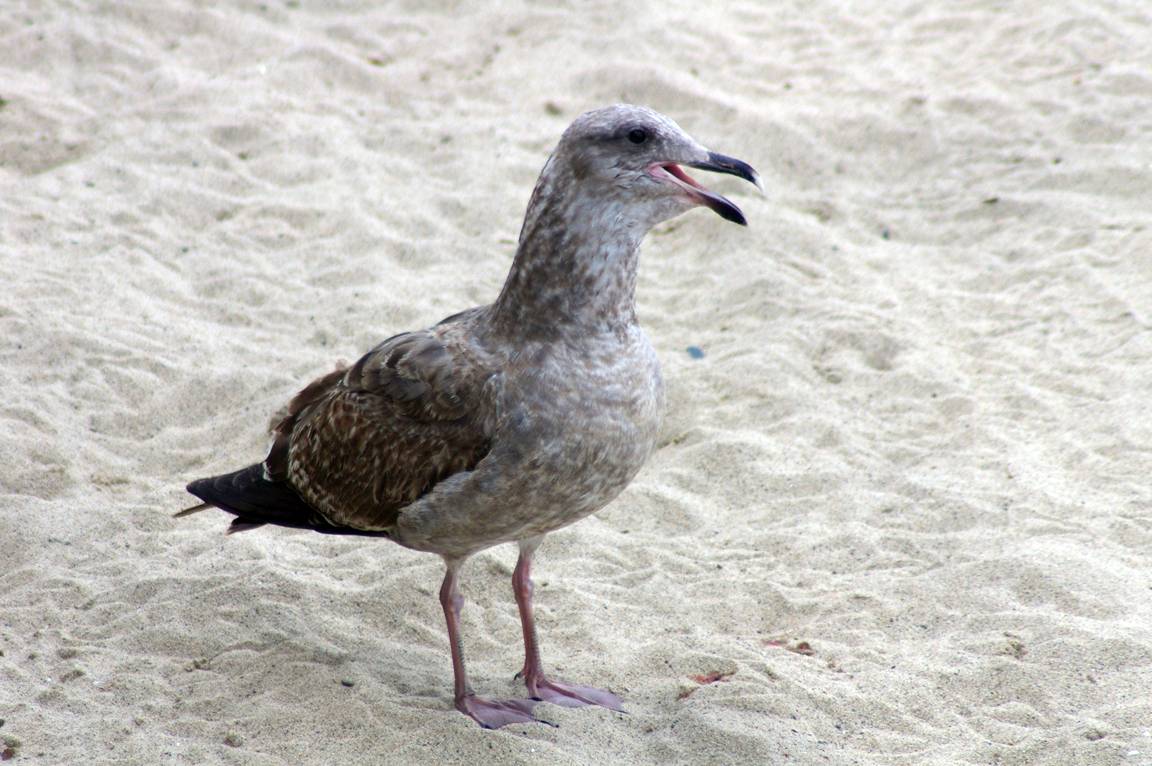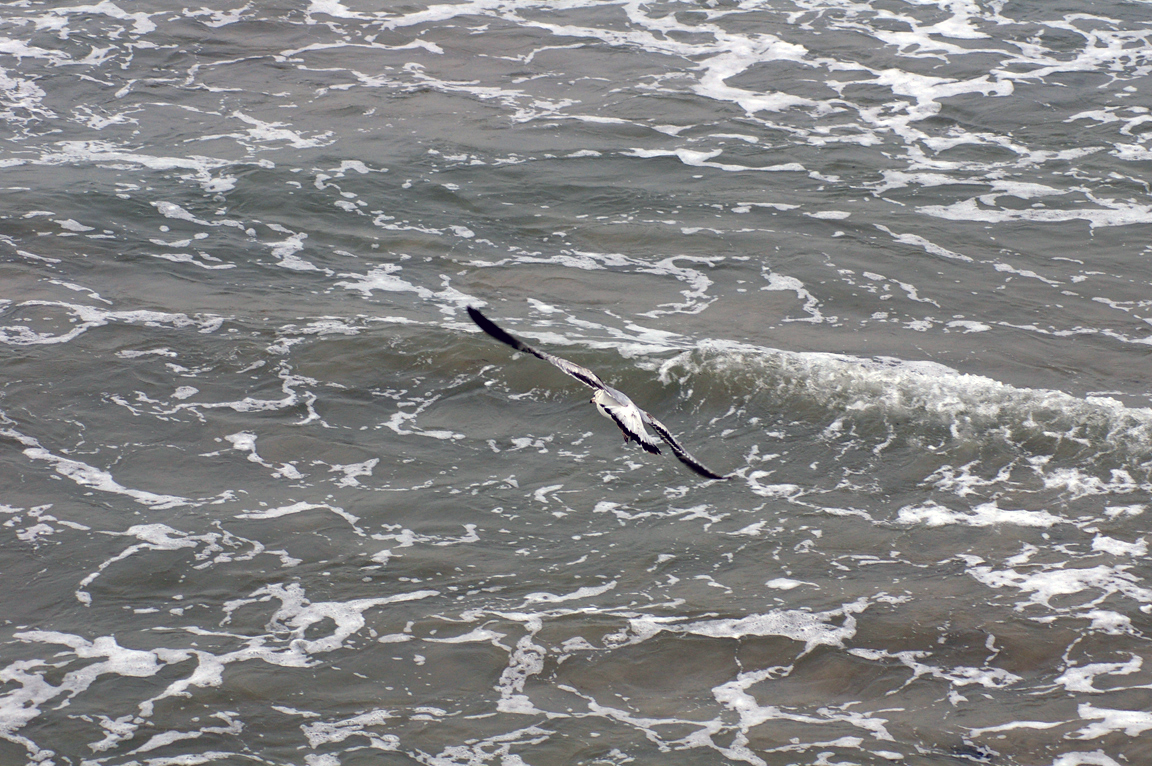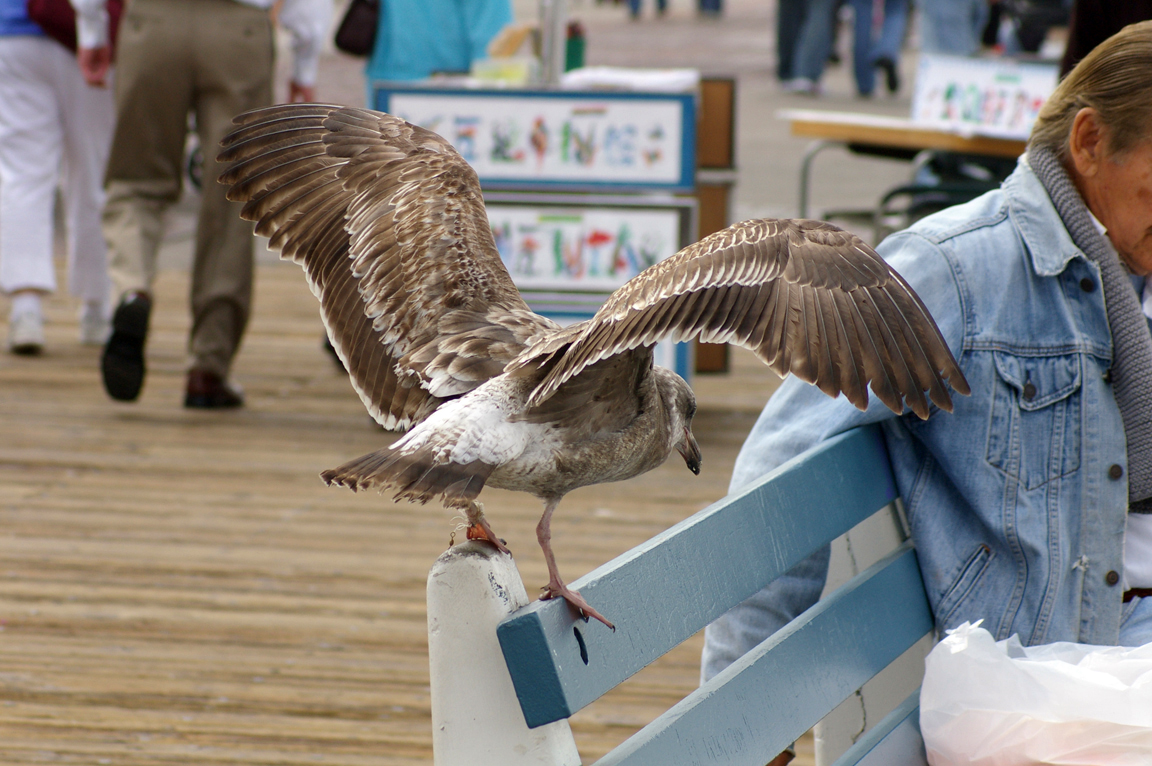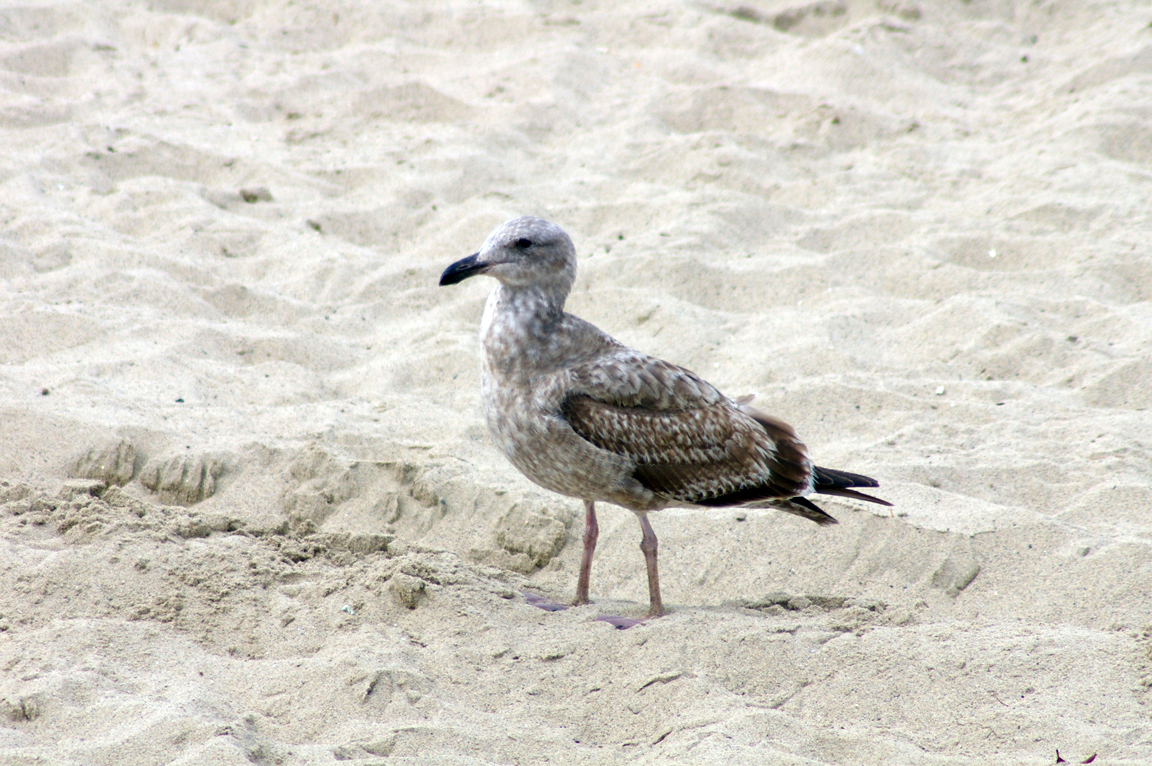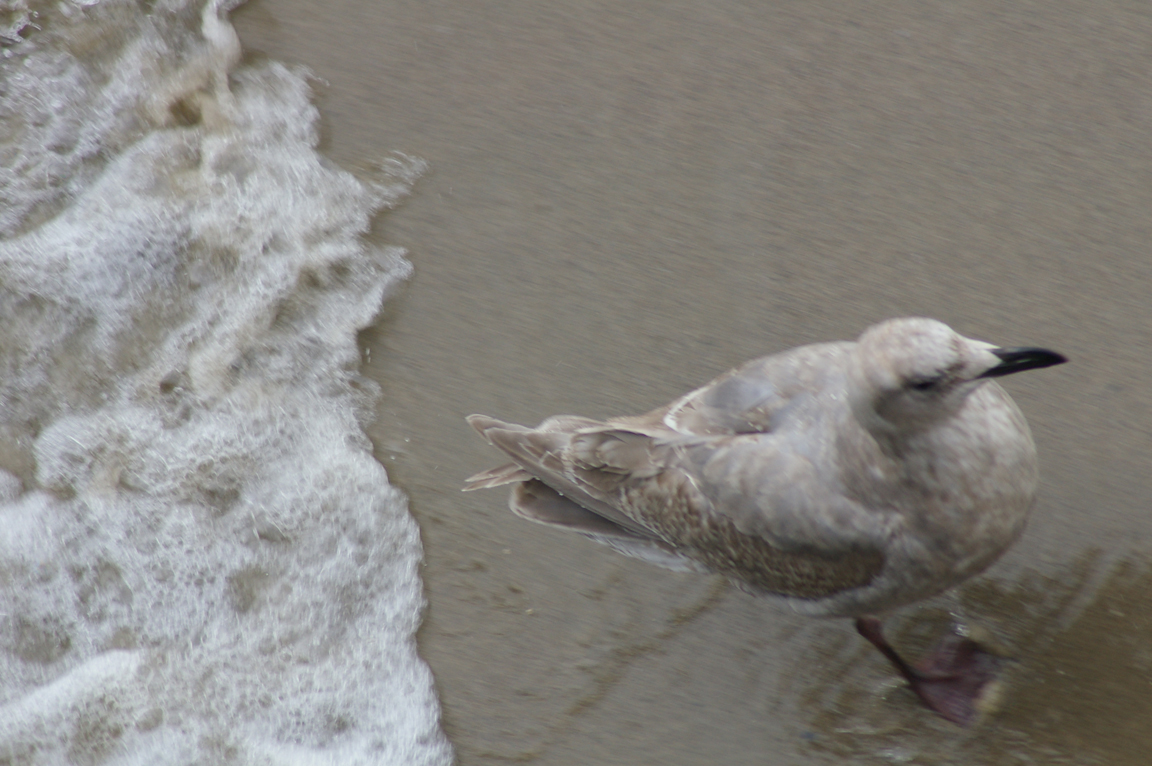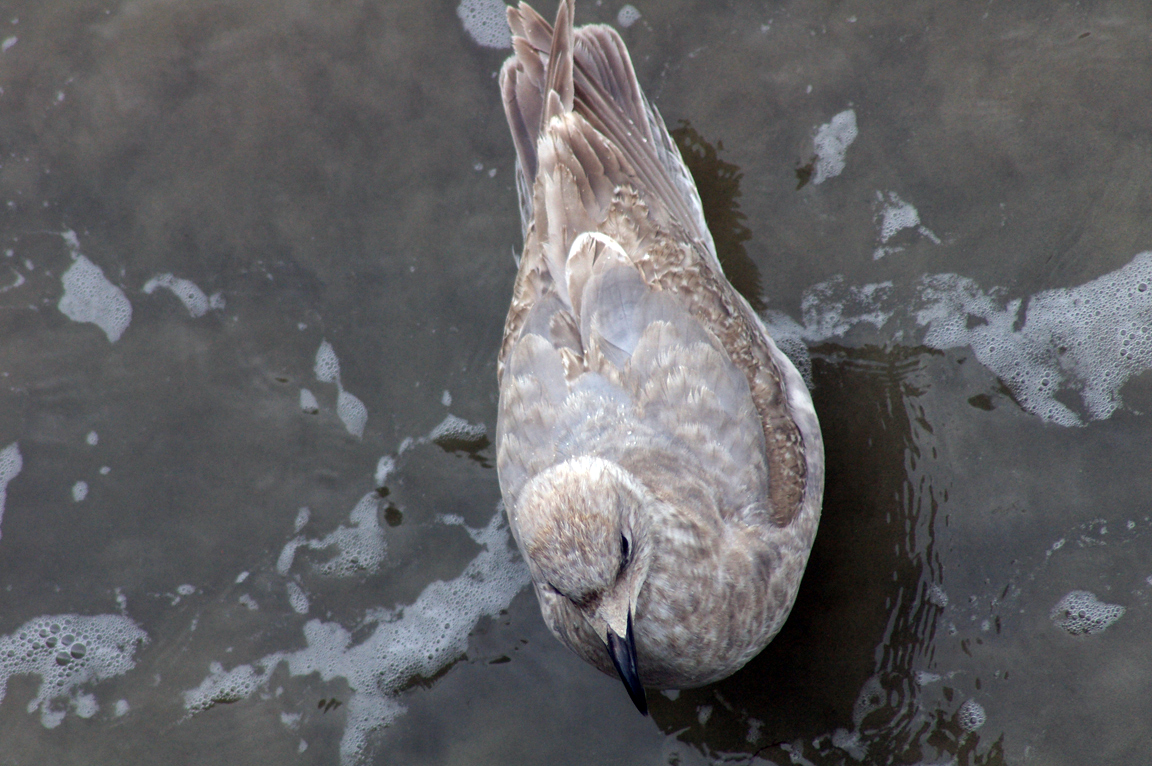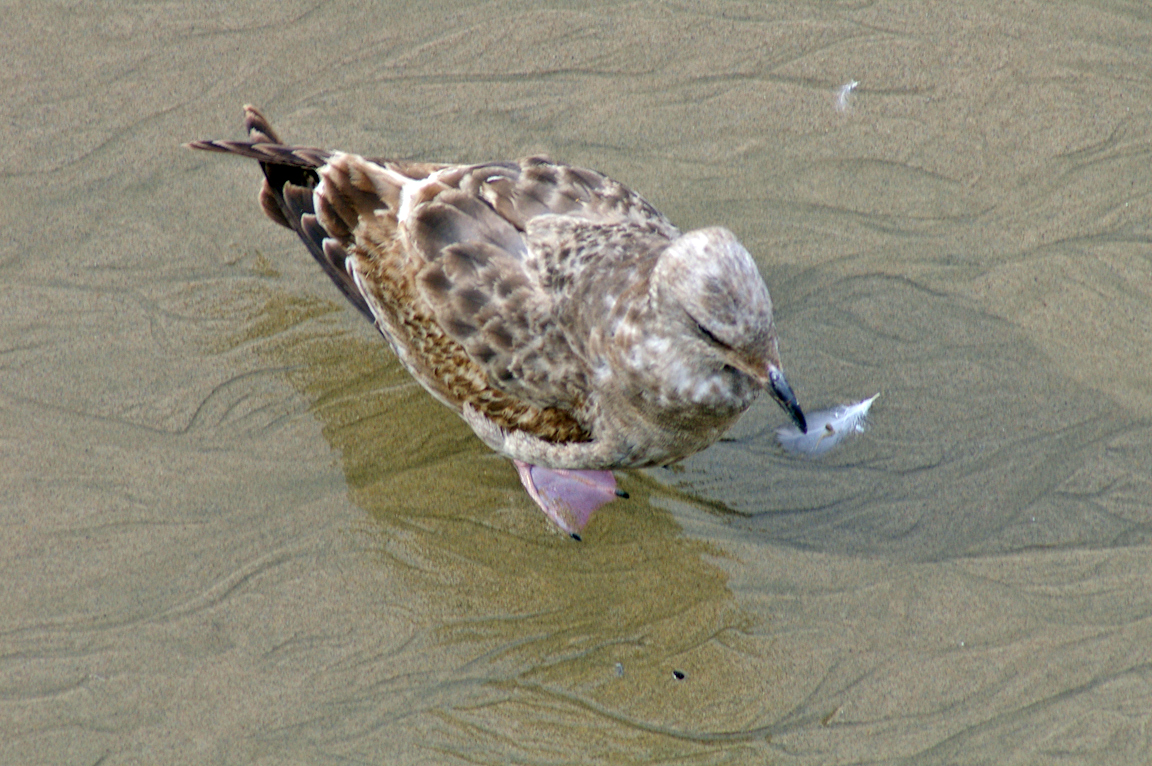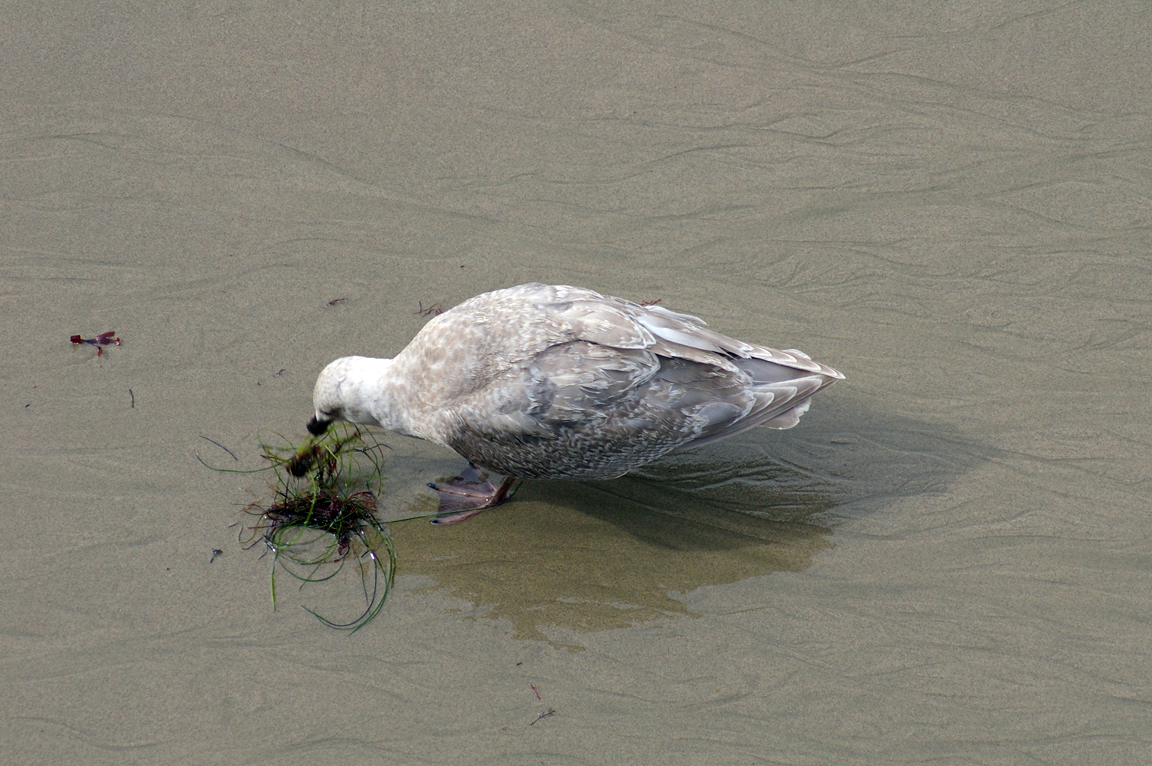|
|
|
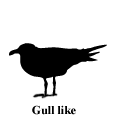 |
Thayer's Gull
|
| Larus thayeri | |
The Thayer's Gull breeds in the high Arctic of Canada and winters along the northern Pacific Coast. It has become a more common winter visitor to the Great Lakes and the East Coast, but it is unknown whether increasing reports are due to increasingly eastward movement of the species or to more birders being aware of this rare gull.
Interesting Information
Thayer's Gull appears like a pale Herring Gull or a dark Iceland Gull. It was once considered a subspecies of Herring Gull, but now is considered by many a race of Iceland Gull.
Description
Adult Description
-
Size: 52-60 cm (20-24 in)
-
Weight: 1000 g (35.3 ounces)
-
Medium to large gull.
-
Head and underparts white.
-
Back light gray.
-
Wingtips streaked black-and-white, mostly pale below.
-
Bill yellow with red spot near tip of lower mandible.
-
Head rather rounded.
-
Underside of wingtip dark gray to silver.
-
Eyes usually dark brown, may be yellowish.
-
Legs deep pink.
Breeding (Alternate) Plumage
Head, neck, and underparts pure white. Back and wings light gray. Purplish red ring of skin around eyes. Bill yellow with red spot.
Nonbreeding (Basic) Plumage
Head and sides of breast variably streaked with dusky, sometimes forming a dirty hood. Dusky area in front of eye.
Sex Differences
Sexes look alike, male slightly larger.
Immature
Juvenal Plumage: Variable from overall light grayish brown to deep smoky brown. Back marked with light brown. Wingtips darker than back. Innermost wing feathers (tertials) mostly dark with light edges. Tail dusky. Bill all black.
First Winter (Basic I) Plumage: Like juvenal plumage.
Second Winter (Basic II) Plumage: Body and head mostly whitish. Back with some gray; wings still mottled with brown. Wingtips and tail darker. Bill dark with pale base.

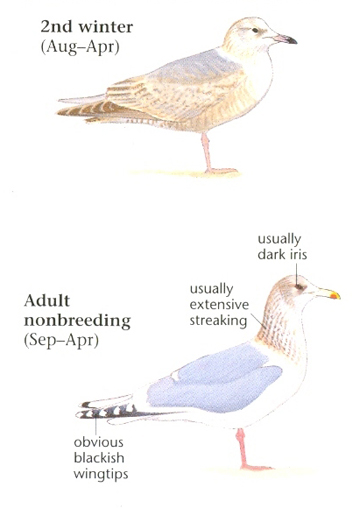
Photo taken from: The Sibley Field Guide by David Allen Sibley
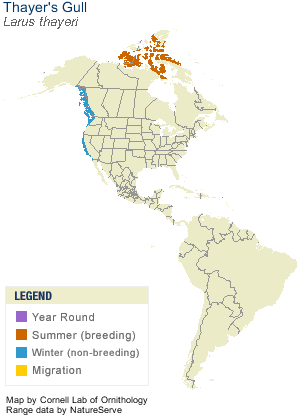
© 2003 Cornell Lab of Ornithology
|
Habitat |
|
Breeds in coastal colonies on rocky precipices of steep cliffs from low to high Arctic, normally facing fjords or sounds, though occasionally up to several kilometers inland. Winters along shores of salt water and less often freshwater lakes and rivers. |
|
Behavior |
|
Picks food off surface of water, food typically swallowed while flying. |
|
Food |
|
Fish, carrion, offal in harbors, marine invertebrates, occasionally eggs and young of other birds. |
Taxonomy
| Kingdom: | Animalia |
| Phylum: | Chordata |
| Subphylum: | Vertebrata |
| Class: | Aves |
| Order: | Charadriiformes |
| Family: | Laridae |
| Subfamily: | Larinae |
| Genus: | Larus |
| Species: | Larus thayeri |
Similar Species |
|
|
Bird Sound |
|
Calls are loud, clear bugling. |
|
Eggs look like this |
|
Photo taken from: ARCTOS Collaborative Collection Management Solution |
